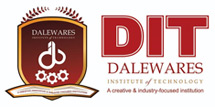Acts Establishing DIT
Dalewares Institute of Technology (DIT) is proud to affirm its establishment under the guidance and approval of the National Board for Technical Education (NBTE), Nigeria (ACT NBTE Establishment ACT 1977 & amendment decree 8 1993(1)) . Our institution is dedicated to adhering strictly to the Acts and amendments set forth by the NBTE to ensure the highest standards of technical and vocational education and training (TVET).
DIT Acts Ammendment
Establishment and Legislative Framework
Dalewares Institute of Technology operates in accordance with the Acts established by the NBTE, which serve as a foundation for our operations, governance, and educational offerings. These Acts are designed to:
- Promote Quality Technical Education: Ensure that technical education provided meets national and international standards.
- Facilitate Curriculum Development: Guide the development and implementation of relevant curricula that cater to the evolving needs of industries.
- Regulate Accreditation Processes: Oversee the accreditation of programs to maintain high educational standards.
- Enhance Institutional Governance: Establish governance structures that promote transparency, accountability, and efficiency.
- Foster Industry Partnerships: Encourage partnerships between educational institutions and industries for practical training and job placement.
Compliance with Amendments
DIT ensures that all amendments to the NBTE Acts are followed meticulously to achieve our objectives. These amendments include updates and revisions that address current educational needs, industry demands, and global best practices.
Accreditation and Quality Assurance:
- Regular accreditation of programs to meet specified quality standards.
- Continuous review and improvement of curricula based on feedback from industry stakeholders.
Institutional Governance:
- Implementation of governance frameworks that promote effective leadership and management.
- Regular audits and assessments to ensure compliance with statutory requirements.
Curriculum Development:
- Development of competency-based curricula that align with industry requirements.
- Incorporation of emerging technologies and methodologies in teaching and learning processes.
Industry Collaboration:
- Establishment of partnerships with industries for student internships, training, and job placements.
- Engagement with industry experts to provide practical insights and training.
Student Support Services:
- Provision of comprehensive support services including career counseling, mentorship, and entrepreneurship development.
- Focus on student welfare and development through extracurricular activities and personal development programs.
Following of Act by DIT
Vision & Mission Statement
Our Vision
To continually deliver excellence and qualitative education with unparalleled creativity and technology.
Our Mission
Provide( QIE) qualitative and inspiring education in a (CLE) contemporary learning environment through (CIT) creativity innovation and technology
Relevance Of Act In TVET Sector
Relevance of the 2019 Amendment act to the New Development of TVET
- The law is the reflection or mirror of society. With regards to TVET in relations to DIT addresses the convocation, duties and responsibilities of governing council, congregation, Academic Board, Principal Officers among others.
- The act spreads its tentacles to equip the incumbent office holders their limitations and prerogatives like HODs, Deans, Provosts, Directors, Registrar, Bursar, Librarian and Rector.
- The act equally emphasizes the uniqueness of all the institutional committees or sub-committees with their limitation and prerogatives.
